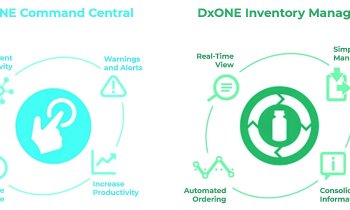News • Accountable care organisations
“Grave concern” over plans to allow US-style bodies to operate in the NHS
It is of grave concern that there has been no public consultation on government plans to enable accountable care organisations (ACOs) to operate in England, say experts in The BMJ.
ACOs were conceived in the US in an effort to improve care and reduce growing health care costs. They involve government and private insurers awarding large contracts to commercial providers to run and provide services. When large groups of providers are given a lump sum to provide care, the theory is that they will provide care that is better coordinated and without the incentives for overtreatment or unnecessary treatment that exist with fee for service arrangements. But Allyson Pollock and Peter Roderick at Newcastle University argue that ACOs represent “a major and deeply worrying reorganisation of health services,” including what the government refers to as a “dissolution of the boundaries” between health and social care.
Introducing ACOs is so fundamental that the proper way to do so would be for the proposals and their justification to be set out openly and clearly
If ACOs are allowed to operate, they warn that “multi-billion pound health and social care budgets, including GP and public health budgets, can be given to ACOs under commercial contracts for up to 10 or possibly 15 years.” They point out that the Secretary of State for Health, Jeremy Hunt, has consulted on some technical changes which would define “ACOs” and enable them to operate under contract. “But so far, there has been no public consultation about whether the law and the NHS should undergo this major change.” NHS England (NHSE) says it intends to consult on a standard model contract for ACOs in 2018. “But if Hunt’s changes are brought in before then, the legal framework would facilitate ACO contracts to be brought in before the public consultation,” they add.
Hunt’s consultation failed to address many issues, they write. For example, why ACOs are necessary to achieve the stated policy objectives, and why the powers already given by Parliament to integrate services are insufficient to achieve the policy objectives. In addition, nothing was said about how the ACO would be prevented from walking away from the contract or the applicability of freedom of information and human rights laws, and whether ACOs would be amenable to judicial review. “Introducing ACOs is so fundamental that the proper way to do so would be for the proposals and their justification to be set out openly and clearly, as in a White Paper, and to invite wide public and professional responses – including in Scotland and Wales where the impact of ACOs is entirely unknown,” argue the authors. “It is of grave concern that this has not been done to date. It is still open to Jeremy Hunt to do so.”
Source: The BMJ
15.11.2017








